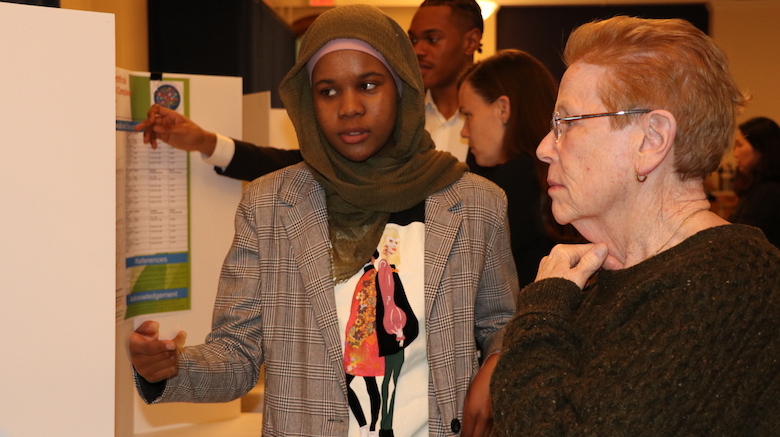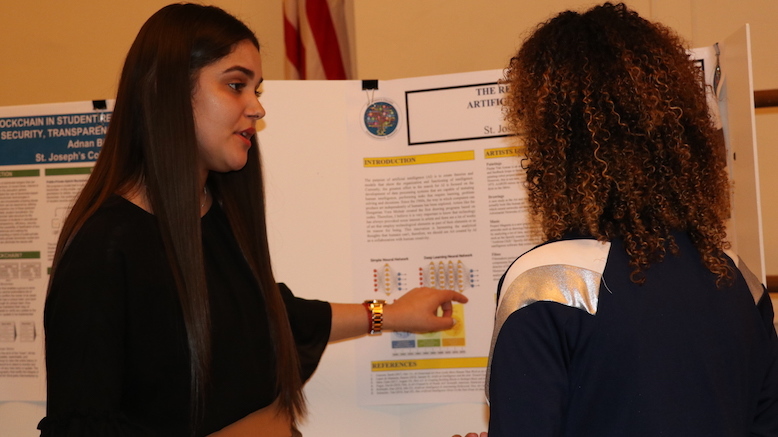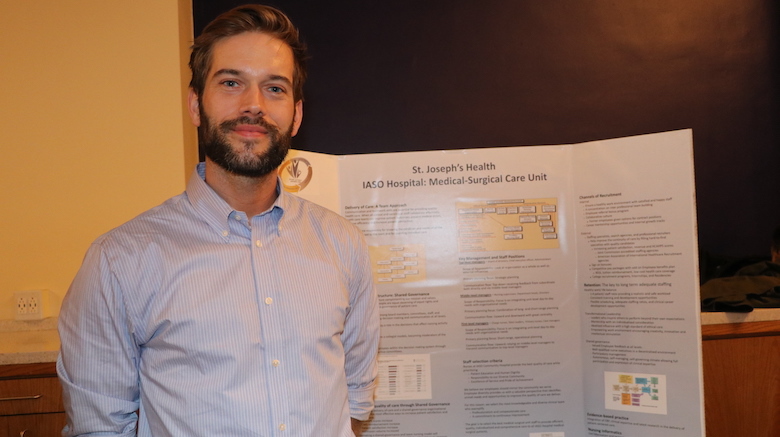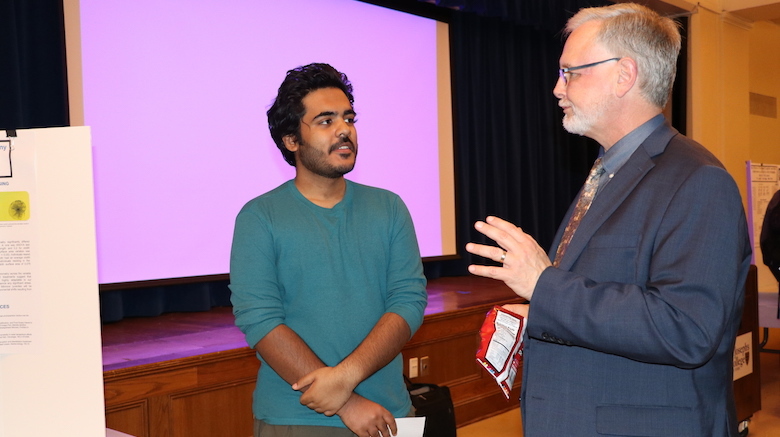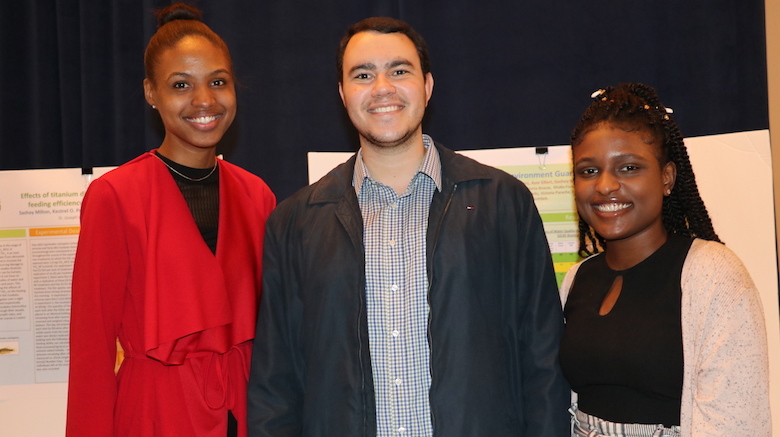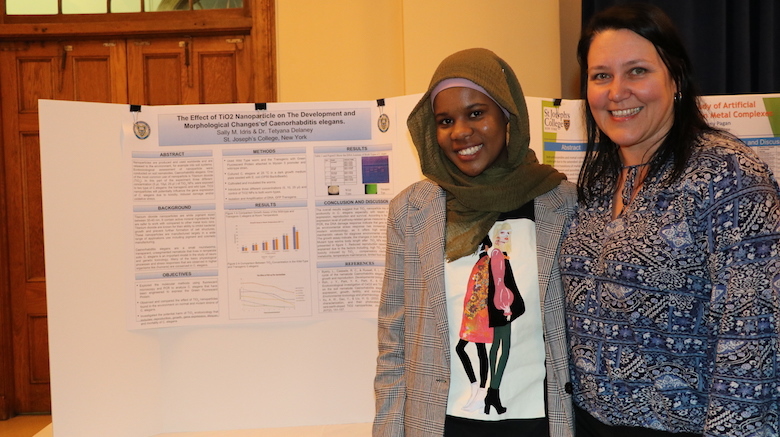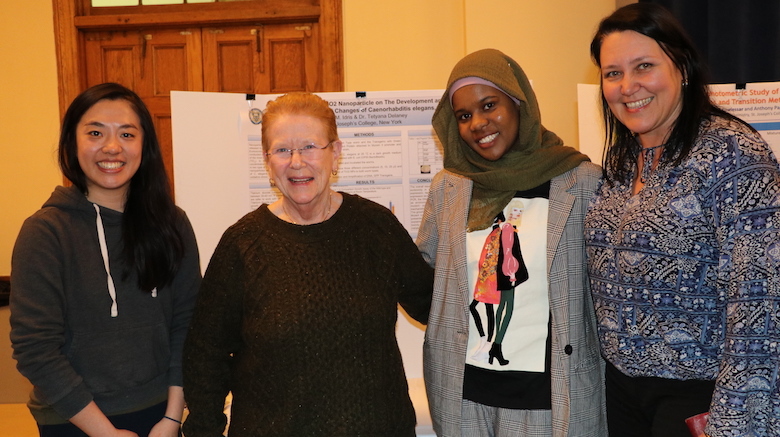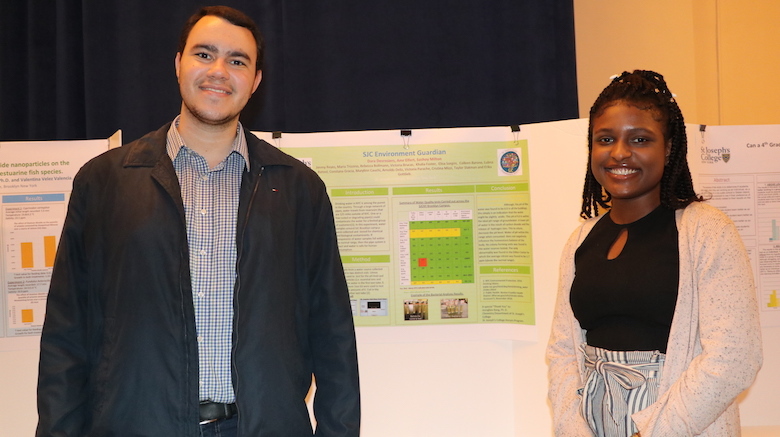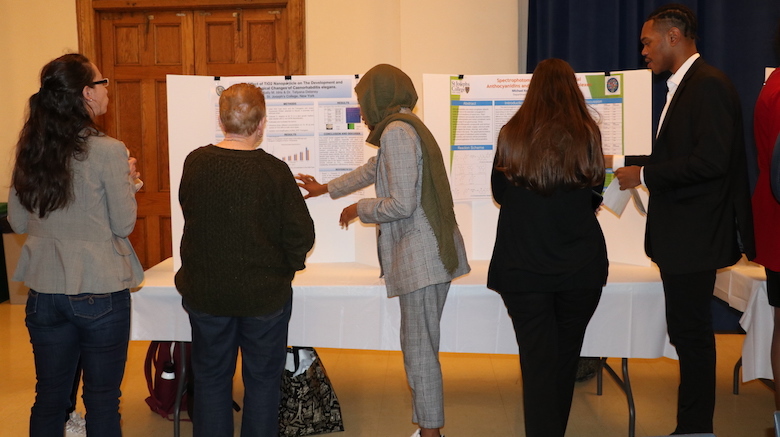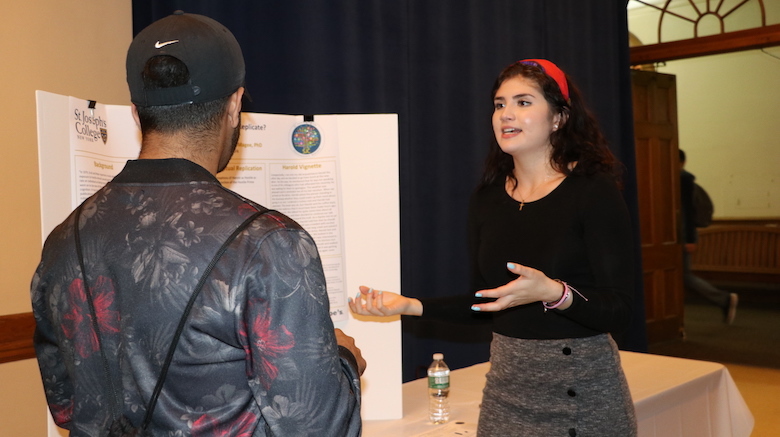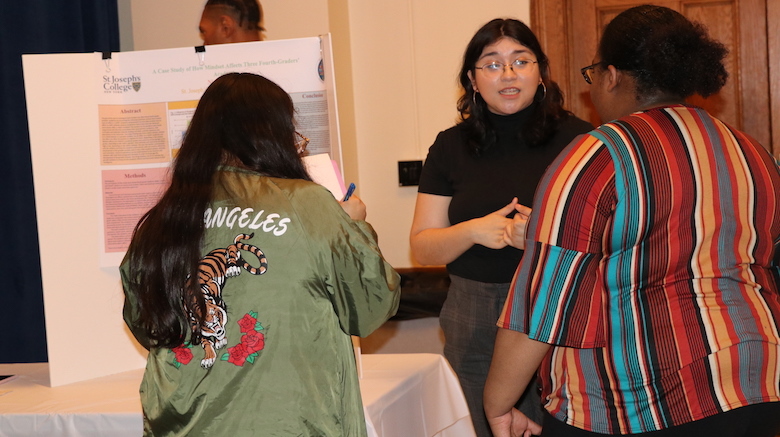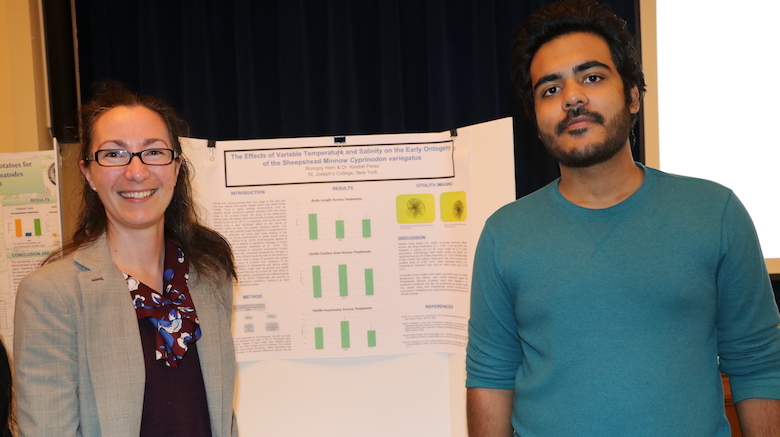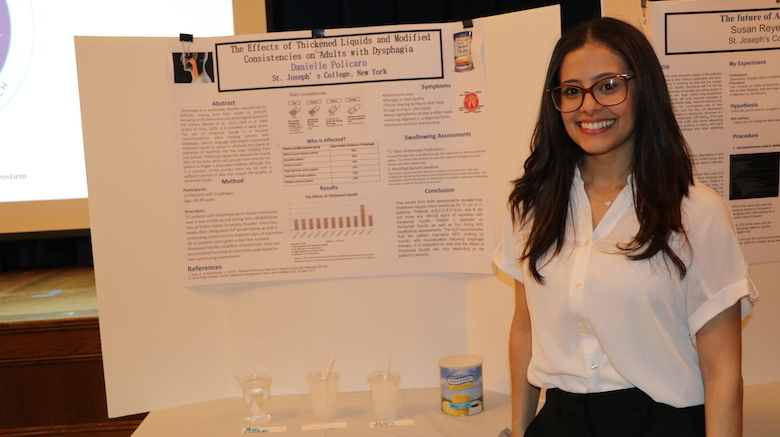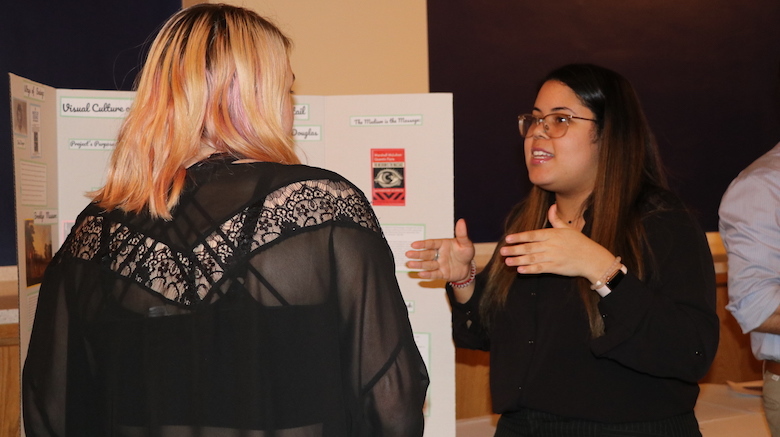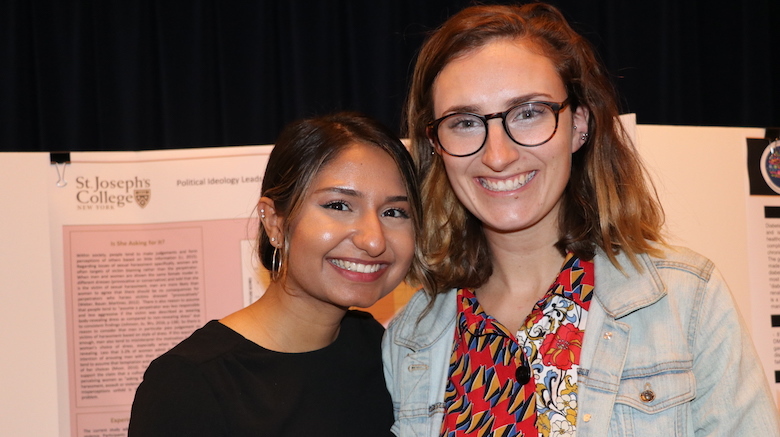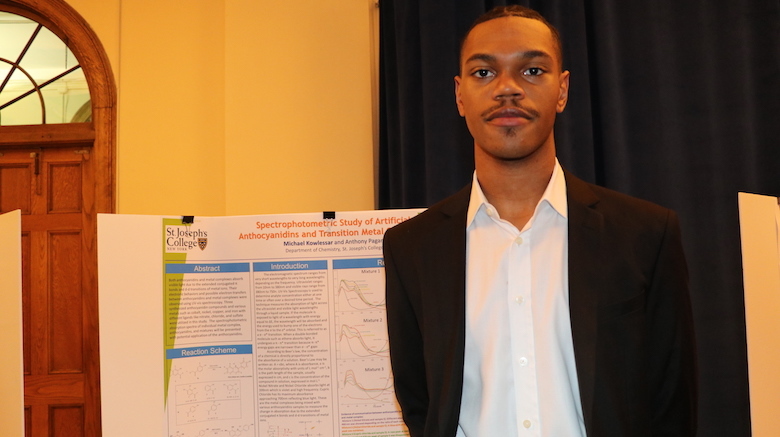Two SJC Brooklyn seniors took home technology scholarships last week during the campus’ Undergraduate Research Symposium.
Biology major Ronojoy Hem and Naomi Moreira, a mathematics and computer science major, each received a $250 award established by St. Joseph’s faculty technology committee that recognizes their individual research projects. The award is given annually at the symposium to students who incorporate innovative technology into their research.
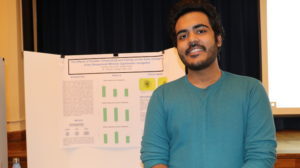
Ronojoy Hem
Hem presented a project that analyzed sheepshead minnows and their ability to survive a range of environmental conditions. His intricate project included measuring the otoliths in the sheepshead minnows’ ears — which are smaller than a grain of sand. Hem removed the otoliths out of the fish and used special microscopy techniques to measure them. He found that sheepshead minnows likely do not experience significant stress when adapting to new environment conditions.
Hem said he has been interested in this topic since his freshman year. His curiosity about the sheepshead minnows continued to develop as he gained a deeper interest in the field of marine biology.
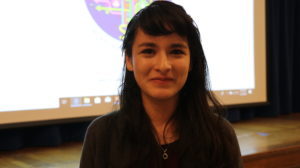
Naomi Moreira
As for Moreira, she used software and computer languages to study the economics and dynamics of recidivism in Arizona’s prison system. She analyzed the costs that go into each prisoner, learning that if more inmates had access to transitional programs, it would lower recidivism rates and decrease costs. Through her research, Moreira found that it was possible to completely eliminate recidivism as more inmates enrolled in a transitional program after their release from prison.
Hem and Moreira are part of SJC Brooklyn’s Academic Center for English Language Studies (ACES) program. Last summer, they studied in a program through St. Joseph’s called Research Experiences for Undergraduates (REU). The program is funded by the National Science Foundation.
Symposium Covers Diverse Topics
Michael Magee, Ph.D., director of undergraduate research and a psychology professor at SJC Brooklyn, expressed pride in the assortment of research projects that dotted the perimeter of Tuohy Hall’s auditorium. The annual symposium gives students an opportunity to show off the long hours they invest in their projects.
“I’m proud to announce tonight that the research contributions are really cross-disciplinary,” Dr. Magee said. “We have research representing more than 10 of our departments, and involvement from over 30 students and 14 faculty and mentors … There are so many great projects here this evening.”
Dr. Magee was the faculty mentor for a project conducted by Lauren Quesada, a junior psychology major. Quesada’s project replicated a famous hostile priming study, conducted by Thomas K. Srull and Robert S. Wyer, Jr. in 1979 at the University of Illinois at Urbana-Champaign. The study found that brief exposure to hostile stimuli caused study participants to subsequently rate an individual as more hostile. The results of Quesada’s experiment on the SJC Brooklyn campus rang very similar to the original study.
The symposium projects represented work from the art, child study, nursing, history, chemistry, biology, psychology, hospitality and tourism management, mathematics, and English departments. Many of the research projects took students a full academic year, or more, to complete.
The following students participated in the symposium:
Isaiah Belk, Christopher Cabrera, Samantha Davis, Juliana DePrimo, Chynna Douglas, Amr Elfert, Jennifer Garcia, Ahmbria Garner, Sally Idris, Shawn Kelly, Alia Rohain Khizer, Michael Kowlessar, Fioriber Manana, Nicole Martinez, Emilia Mateiasevici, Sashoy Milton, Lauren Quesada, Matthew Taylor, Angel Corona, Ronojoy Hem, Christina Caruso, Naomi Moreira, Elisa Sorgini, Maria Guanga and Ryan Suglia.

